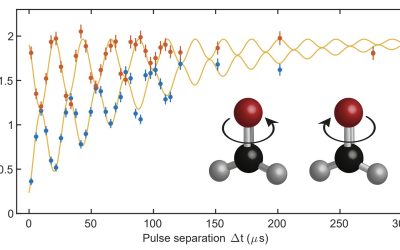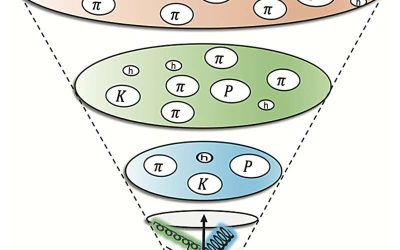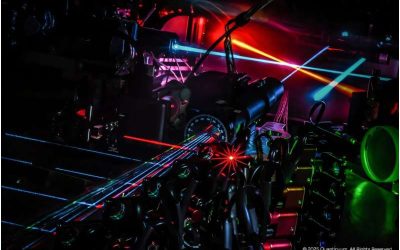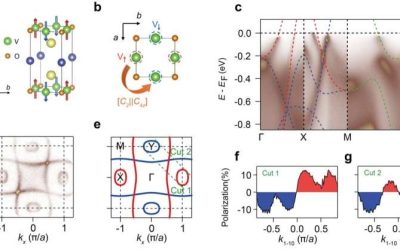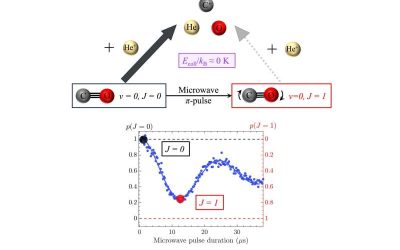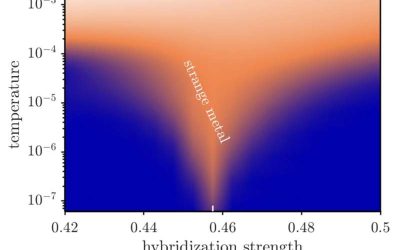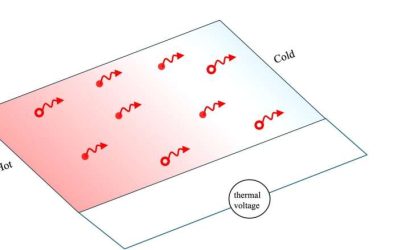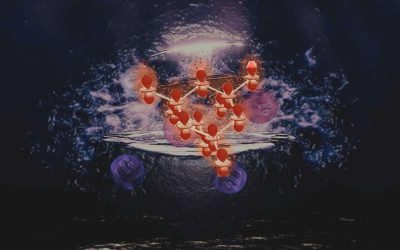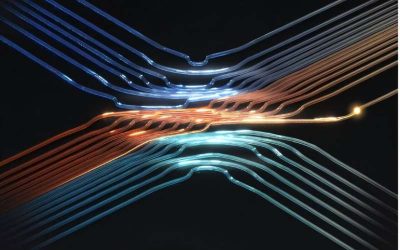Over the past decades, researchers have been trying to develop increasingly advanced and powerful quantum computers, which could outperform classical computers on some tasks. To attain this, they have been trying to identify new ways to store and manipulate qubits,...
Quantum Physics
A new approach to probe hadronization via quantum entanglement
Recent physics studies have discovered that quarks and gluons inside protons, which are subatomic positively charged particles, exhibit maximal quantum entanglement at high energies. Entanglement is a physical phenomenon that entails correlations between distant...
Simulating quantum magnetism with a digital quantum computer
Quantum computers, which process information leveraging quantum mechanical effects, have the potential to outperform classical computers in some optimization and computational tasks. In addition, they could be used to simulate complex quantum systems that cannot be...
Physicists uncover a metallic altermagnet with d-wave spin splitting at room temperature
For many years, physics studies focused on two main types of magnetism, namely ferromagnetism and antiferromagnetism. The first type entails the alignment of electron spins in the same direction, while the latter entails the alignment of electron spins in alternating,...
Microwave pulses can control ion-molecule reactions at near absolute zero
A key objective of ongoing research rooted in molecular physics is to understand and precisely control chemical reactions at very low temperatures. At low temperatures, the chemical reactions between charged particles (i.e., ions) and molecules unfold with highly...
Study proposes new mechanism underpinning intrinsic strange metal behavior
Quantum critical points are thresholds that mark the transition of materials between different electronic phases at absolute zero temperatures, around which they often exhibit exotic physical properties.
Thermopower-based technique can detect fractional quantum Hall states
If one side of a conducting or semiconducting material is heated while the other remains cool, charge carriers move from the hot side to the cold side, generating an electrical voltage known as thermopower.
The first comprehensive characterization of unconventional superconductivity arising from multipolar moments
Superconductivity is a quantum phenomenon, observed in some materials, that entails the ability to conduct electricity with no resistance below a critical temperature. Over the past few years, physicists and material scientists have been trying to identify materials...
An experimental test of the nonlocal energy alteration between two quantum memories
Quantum technologies operate by leveraging various quantum mechanical effects, including entanglement. Entanglement occurs when two or more particles share correlated states even if they are distant.
Wireless terahertz cryogenic interconnect minimizes heat-to-information transfer in quantum processors
Quantum computers, devices that process information leveraging quantum mechanical effects, could outperform classical computers in some complex optimization and computational tasks. However, before these systems can be adopted on a large-scale, some technical...

